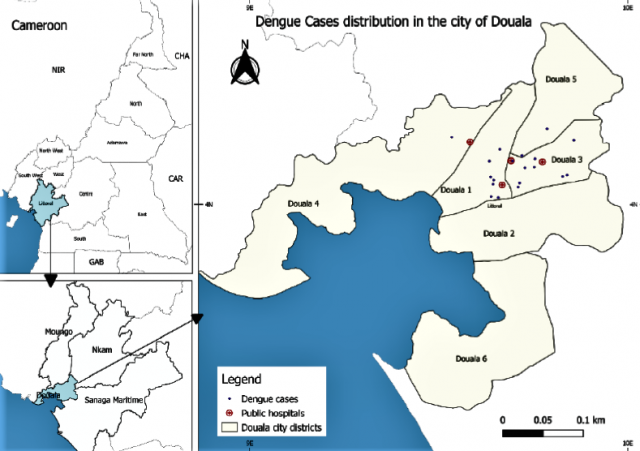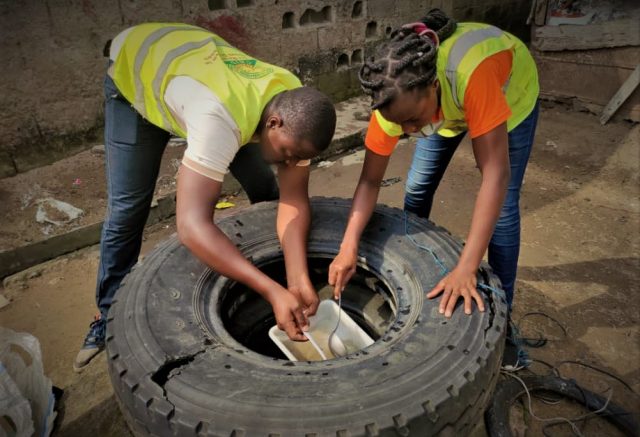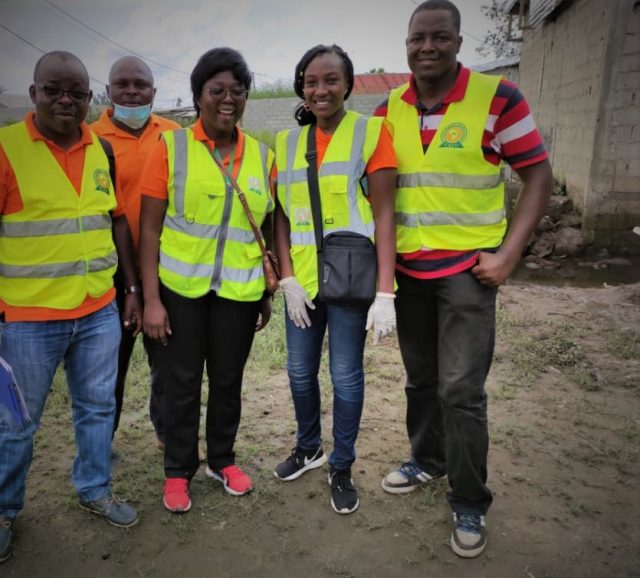CRID researchers confirmed concurrent circulation of three dengue serotypes in Cameroon.

Cartography of dengue case in Douala
It is the result of a survey carried out by Dr. Huguette Simo Tchetgna. As CRID associate researcher, she has demonstrated the importance of monitoring emerging and re-emerging viruses in urban areas of Africa, especially in metropolitan areas. Together with her team, they revealed dengue infections as a significant cause of acute febrile disease cases in public hospitals in Douala. The presence of three serotypes of dengue virus (Denv): DENV-1, DENV-2, and DENV-3, and co-infections involving DENV-2 and DENV-3 were confirmed in the study. This study revealed that between July and December 2020, among the 320 acute febrile cases examined, 12.8% of cases were positive for dengue. Denv-3 was the most common serotype identified with 68.3%, followed by DENV-2, 19.5%, and DENV-1, 4.9%. Co-infections of DENV-3 and DENV-2 were found in 3 cases.
The presence of multiple serotypes is alarming as it demonstrates the increased likelihood of severe dengue. It is of sufficient concern to warrant further epidemiological studies and the development of appropriate dengue outbreak prevention and response plans in Cameroon and elsewhere in the Central African Sub-region.

Members of the research team collecting samples in the field
It has been confirmed that dengue infection is mainly found in adults during the rainy season. This high infection rate during the wet season corresponds with the rise in abundance of the vector’s breeding sites in Douala, in the Littoral Region of Cameroon. Co-infections of dengue and malaria have also been reported previously in Cameroon and elsewhere in Africa, at levels similar to the 55.6% found in the current study. These levels of co-infection between malaria and dengue may be a reflection of the low socio-economic status of the affected population since transmission of both pathogens by their respective vectors is favored by poor quality houses, poor sanitation conditions, and poverty.
In Africa, Dengue outbreaks have been recorded more frequently in several countries including Gabon, Angola, Mozambique, Kenya, Ethiopia, Sudan, and Burkina Faso. All four DENV serotypes have been widely reported across Africa. The co-circulation of two or more serotypes was first reported in Gabon in 2013 and is becoming more common as in Kenya, Burkina Faso, Nigeria, and Tanzania, raising fears that severe dengue may become more frequent in future outbreaks in Africa. In Cameroon, numerous studies over the past twenty years have reported seroprevalence rates in rural and urban areas in Cameroon, with no major outbreak notifications.
This cross-sectional study was conducted from July to December 2020 in 4 public hospitals in Douala, the largest city in Cameroon with approximately 3 million inhabitants. It has a warm and humid tropical climate with an average annual temperature and precipitation of 26°C and 3600mm respectively.

Dr. Huguette SIMO and her research team mates






